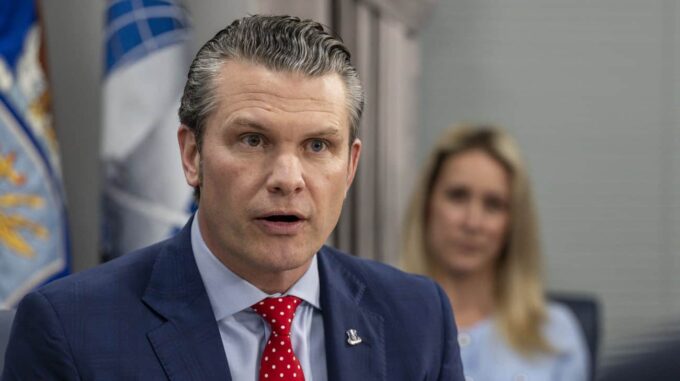The Head of the Pentagon Announces Intent to Reduce Military Support to Ukraine: What This Means for Ukrainian-American Relations

In his speech before the U.S. Congress, the country's Secretary of Defense, Peter Gagset, made a loud statement regarding the prospects of military aid to Ukraine. According to him, the Trump administration plans to decrease the amount of funding for Kyiv's security assistance, which could have significant implications for the Ukrainian armed forces' defense capabilities and future diplomatic efforts in the region. During congressional testimony on Tuesday before the U.S. House of Representatives Committee, Gagset confirmed that the budget allocated for Ukraine would be substantially reduced. In response to a question from Democratic Congressman Joseph Morel about funding Ukrainian aid, he replied unequivocally: "The budget for this purpose will be decreased." The minister emphasized that the new U.S. government has a different approach to the conflict in Ukraine and seeks to find peaceful resolution pathways, as diplomacy and diplomatic efforts are currently the main focus in global politics. Gagset noted that there is no definitive and clear victory goal for the Trump administration in the war in Ukraine, as the path to victory remains uncertain. "We believe that Ukraine's victory has not yet been determined, and our assessments regarding future steps remain open," he added. At the same time, the official stressed that President Trump is particularly interested in seeking compromise solutions that would stop the bloodshed and lead to an end to the conflict, as the war in Ukraine has become one of the main geopolitical issues of modern times. Overall, Trump's position on aid to Ukraine remains ambiguous. Although the new administrative course envisions reducing military support, previous administrations, including the Trump administration before, continued to provide Kyiv with military weapons and equipment, including those already agreed upon and announced earlier. It is important to note that this policy has sparked lively social and political discourse in the U.S., especially among NATO allies and international partners. Recently, Ukrainian President Volodymyr Zelensky confirmed that the U.S. has reoriented some of its military resources and components used by Ukrainian forces to fight Russian drones on Donbas and other fronts. Specifically, American troops have transferred equipment to Kyiv that allows the destruction of enemies in the air, but now questions arise as to how much this assistance will decrease under the new Trump administration policy. Experts are expressing concern about the future U.S. support for Ukraine in light of the administration's new promises. On one hand, the U.S. government aims to preserve strategic stability and resolve the conflict diplomatically. On the other hand, reducing military aid could hinder the Ukrainian army’s ability to defend itself and prevent further advances by Russian forces in the country’s east. Thus, the U.S. decision to cut back on military support to Ukraine signals a shift in Washington’s foreign policy stance regarding Ukraine and Russia. It casts doubt on the continuation of strategic partnership and sparks internal debates within the U.S. among politicians, civil society organizations, and supporters of Ukraine’s fight for independence and sovereignty. At the same time, for the Ukrainian authorities, heavily dependent on external assistance, this move creates a serious crisis and threatens the effectiveness of further military and diplomatic efforts to settle the ongoing conflict, which has already lasted over a year.

